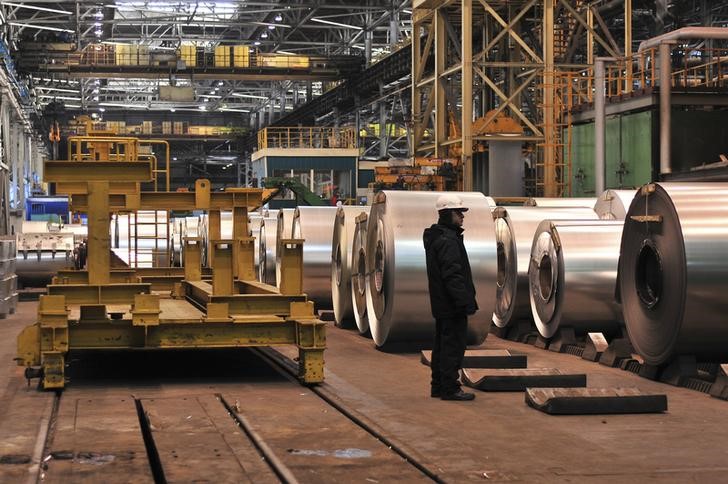* Iron ore stocks at China ports highest since 2004
* Shanghai rebar drops for second day
* Spot iron ore hits lowest level in a year
By Manolo Serapio Jr
MANILA, June 14 (Reuters) - China's iron ore futures tumbled to their weakest level in almost seven months on Wednesday, underlining concerns over surplus supply that has pulled down spot prices to their lowest in a year.
Stockpiles of imported iron ore at China's ports reached 140.05 million tonnes on June 9, the most since 2004, according to data tracked by SteelHome consultancy. SH-TOT-IRONINV
"Rising seaborne supply and high port stockpiles continue to weigh on prices," Commonwealth Bank of Australia analyst Vivek Dhar said in a note.
"Demand has also weakened as Chinese steel mills look to use more scrap steel in their blast furnaces," said Dhar, adding that scrap steel prices have fallen sharply following Beijing's crackdown on induction furnaces.
China has vowed to shut by the end of June all producers of highly polluting low-quality steel that use induction furnaces which consume steel scrap as raw material. most-traded iron ore contract for September delivery on the Dalian Commodity Exchange DCIOcv1 was down 2.5 percent at 416.50 yuan ($61) a tonne by 0200 GMT. It earlier fell as far as 412.50 yuan, the lowest since Nov. 21.
Weaker futures dampened bids in the spot iron ore market, traders said, dragging the spot benchmark by nearly 3 percent.
Iron ore for delivery to China's Qingdao port .IO62-CNO=MB fell 2.8 percent to $53.36 a tonne on Tuesday, the lowest since June last year, according to Metal Bulletin.
Iron ore has lost nearly a third of its value this year, underperforming other commodities such as nickel CMNI3 and oil LCOc1 .
Softer steel prices also weighed on iron ore, with rebar futures in Shanghai down for a second straight day. The most-active rebar on the Shanghai Futures Exchange SRBcv1 slipped 1.2 percent to 2,959 yuan per tonne.
ANZ analysts said the weakness in steel prices was driven by a new directive from China's top state planner that there would be no approval of new entities investing in vehicles powered by fossil fuels.
The policy issued by the National Development and Reform Commission this week extends to the automotive sector Beijing's fight against overcapacity and "zombie" firms that is already underway in the coal and steel sector. firms are economically unviable enterprises that often survive with the support of local governments and banks.
($1 = 6.7973 Chinese yuan)
